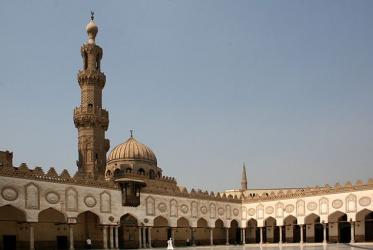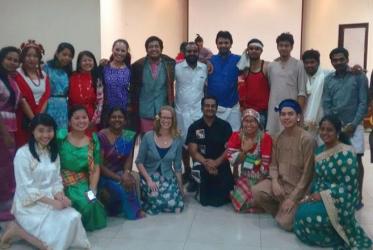Displaying 141 - 160 of 431
Nigerian breaks down stereotypes on Muslims
13 July 2017
Holy work for the Holy Land
29 March 2017
Being Church in Europe Today: Migration through a theological lens
14 December 2016
Al-Azhar: navigating the difficult centre
06 October 2016
Religious leaders of many faiths talk peace in Assisi
21 September 2016





